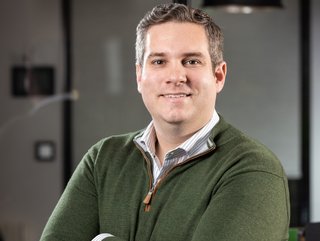Schneider Electric: Data Centres ‘are Empowering Healthcare’

In the dynamic landscape of healthcare, a “transformative synergy” is unfolding between data centres and the industry, a key executive from Schneider Electric says.
Elliott Turek is Director of Category Management, Europe, at Schneider, the French digital automation and energy management multinational.
A global leader in energy management and automation solutions, Schneider provides critical infrastructure and innovative technologies around power distribution, cooling and automation. The company also offers solutions and services to build both new data centres and upgrade retrofits.
Turek says data centres are playing a “pivotal role” in advancing precision medicine, as healthcare organisations work towards integrating AI into healthcare data analysis, while ensuring data security and compliance.
“The intersection of data centres and healthcare represents a crucial milestone in the evolution of medical practices,” he says.
Turek says ‘precision medicine’ is a paradigm shift from a one-size-fits-all approach to tailored treatments, and that advances here are being driven in part by “the robust infrastructure of data centres”, which he says is helping “facilitate extensive data processing and analytics opportunities”. This, he adds, is “empowering healthcare professionals with unparalleled accuracy”.
Turek cites the impact of such technology on cancer research as an example.
“Data centres enable the analysis of vast genomic datasets,” he says. “which helps identify genetic markers that inform targeted therapies.”
He explains that the nexus of data processing capabilities and healthcare expertise is leading to more effective and personalised treatment strategies.
“The strides made in precision medicine underscore the potential of data centres in reshaping patient care” he says.
Schneider: GenAI 'creating scenario planning opportunities'
Turek adds: “In the realm of healthcare, the marriage of AI and language models like ChatGPT is opening up unprecedented avenues for scenario planning in the face of potential epidemics.
“The ability to interpret large amounts of health data swiftly and accurately has become a crucial aspect of preparedness, allowing for timely predictions and strategic responses.”
The impact of high-end data capabilities on healthcare has been noted by the World Health Organization, whose Director of the Department of Digital Health and Innovation, Alain Labrique, says AI-based approaches “offer a unique strength in analysing large datasets, identifying early signals of potential anomalies in public health”.
Labrique has also noted that the versatility of advanced computational tools like AI is helping not only to detect new epidemics and pandemics but also with crafting effective responses to such health crises.
He emphasises, too, the importance of addressing biases and ensuring such models are fed with diverse and high-quality data,
“The challenge here,” says Turek, “lies not only in the sophistication of the models but in the inclusivity of the data they are trained on.”
He adds: “This technology will be critical to utilising AI for real-world healthcare planning, especially in determining when interventions such as lockdowns are necessary.”
Turek points out that, by drawing upon on-the-ground data, AI models can assess real-time situations and “provide insights into when to implement various measures such as lockdowns, mask mandates, or staffing adjustments”.
Data centres 'healthcare data compliance guardian'
He also highlights the issue of compliance issues around data protection, and says that data centres can perform a “guardian” role here.
“As data centres become more integral to healthcare processes, questions about the security and compliance of sensitive medical information inevitably arise,” he says.
Turek stresses that compliance is “pivotal to building trust in the potential of data-driven healthcare”, adding that data centres – equipped with robust security measures – ensure the confidentiality and integrity of patient data.
He says: “Data centres play a pivotal role in maintaining high-level standards for the storage and processing of healthcare information. The evolving landscape of healthcare regulations necessitates a dynamic approach, and data centres stand as guardians committed to safeguarding patient privacy and data integrity.”
Looking to the future, Turek feels AI is poised to revolutionise healthcare on a scale broader than pandemic-control. He points to insight from industry leaders, such as Johnson & Johnson, which show how AI is being used in diverse and innovative ways – including speeding up drug discovery and enhancing surgical analyses.
Turek namechecks Shan Jegatheeswaran, J&J’s Global Head of MedTech Digital, who he says believes the role of AI is “to augment human decisions, and improve the speed and quality in clinical workflows”.
Turek adds that, in the context of this landscape, Schneider Electric has also introduced EcoStruxure for Healthcare, which is an Internet of Things (IoT)-powered solution designed to bolster the resilience of healthcare ecosystems.
“The objective is clear,” he says. “It is to ensure an uninterrupted power supply to hospitals and healthcare providers.”
The initiative was rolled out in India, the goal being to establish a network of primary health centres across India, in a bid to democratise healthcare and provide continuous care.
“EcoStruxure ensures a smooth digital flow across hospital assets, offering decision-makers a clear view of daily operations,” explains Turek. “It provides a robust system to handle peak patient and energy demands, ensuring 24/7 operations even in remote areas.”






